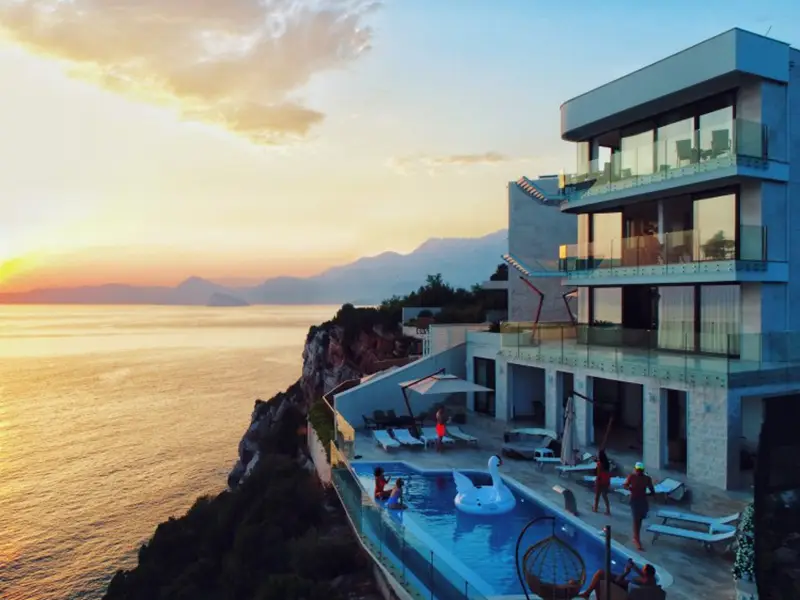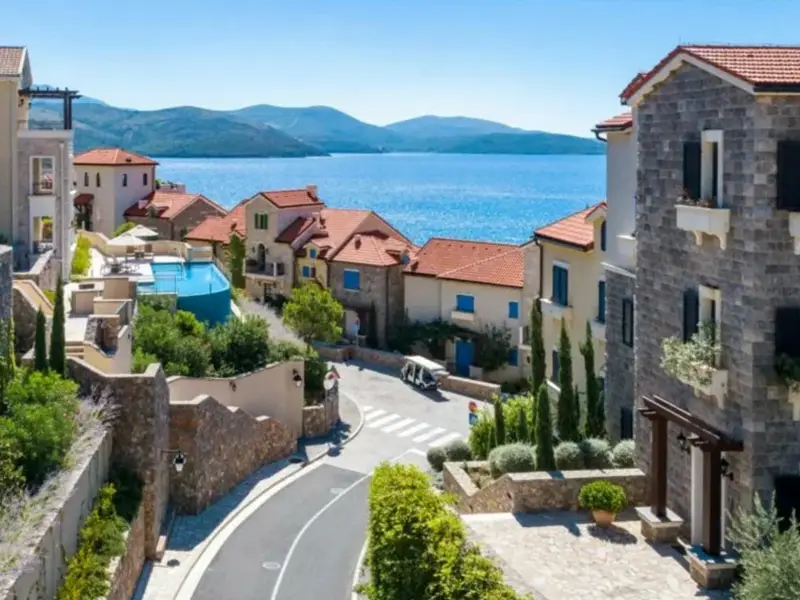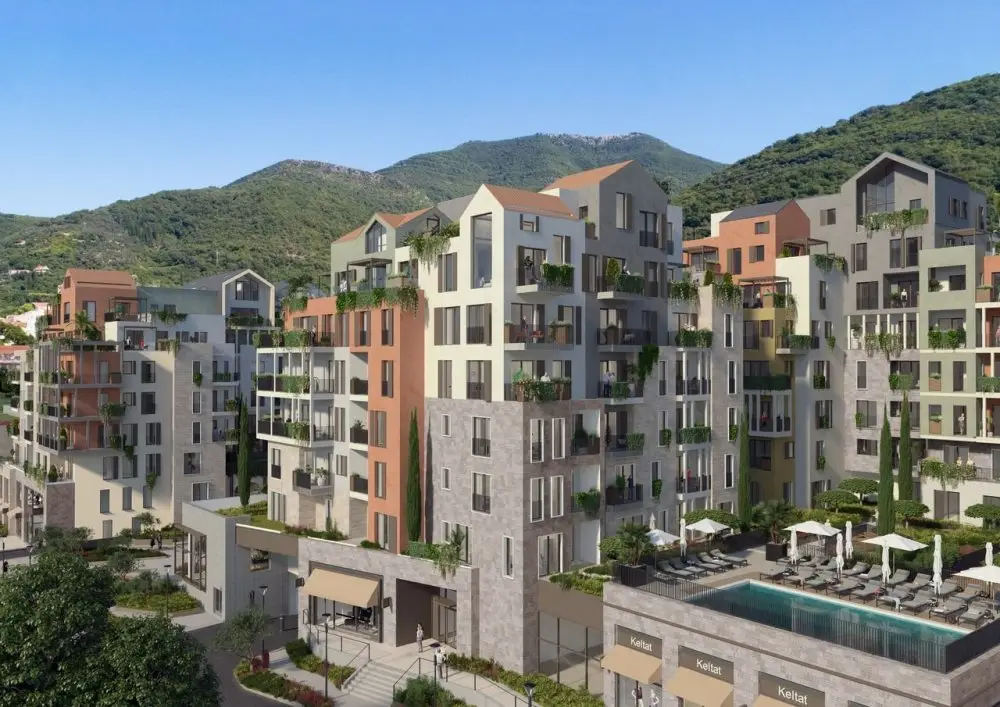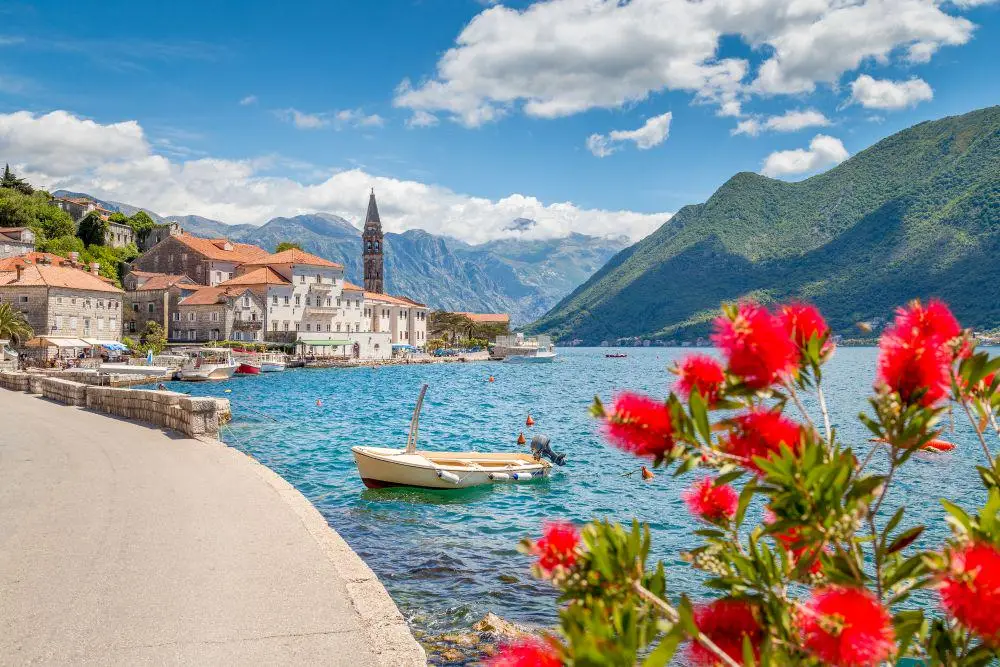Buying property abroad is an important decision that requires care and knowledge. Many people want to buy a flat in Montenegro, and no wonder: beautiful beaches, a stable economy and a European standard of living. Learn the key points to avoid mistakes and make the right choice.

Why Montenegro is the ideal place to buy a flat
Montenegro in recent years is rapidly becoming one of the most popular countries for buying property among foreign investors and residents of CIS countries. Why exactly is it? First of all, it is a stable economy and tax system, which provides favourable conditions for property owners. The state actively supports investments and offers preferential programmes, such as the “Golden Visa”, which allows you to obtain citizenship through the purchase of square metres.
Features of the local market also make it attractive for those looking for property in Montenegro. House prices here remain at a relatively low level when compared to more developed countries in Europe. In terms of financial attractiveness, Montenegro stands out favourably due to low taxes and the possibility of receiving a steady rental income. The country’s foreign policy, its calm social environment and excellent climate are additional factors that attract investors.
How to choose a location for a flat in Montenegro
Buying a flat in Montenegro means not just buying a property, but choosing a region that suits your lifestyle. The tranquillity of the mountains or the buzz of a resort town overlooking the sea?
- Budva is the centre of Montenegrin tourism. If developed infrastructure, variety of entertainment and proximity to the beach are important, a flat in Budva will be an excellent option. Prices here can vary from 1500 to 3000 euros per square metre in a new building.
- Tivat is a dynamic city with a luxurious marina that attracts those looking for a quiet life in close proximity to the sea. Living space with a sea view in Tivat can cost from 2500 euros per square metre.
- Kotor is an ancient town with a unique atmosphere. If you are looking for accommodation in Montenegro with historical value and unique atmosphere, this place is ideal. Here you can find both old houses and modern complexes.
Each location has its own unique atmosphere, but in any case, buying a flat in Montenegro with a sea view is not only a luxury but also a great investment.
How to buy a flat in Montenegro: step by step
 Let’s take a step-by-step look at what you need to do:
Let’s take a step-by-step look at what you need to do:
- Choose a property. First of all, you need to decide on the location and type of property. Ask yourself questions: do you want to live in the historical centre or do you prefer more modern accommodation with sea views? It is important to consider the infrastructure, transport accessibility and potential profitability if you plan to rent out the property.
- Draw up a contract. In order to buy a flat in Montenegro, a foreigner will need to sign a preliminary agreement. This is an important step, in which all the terms of the transaction must be spelt out, including the price, terms of transfer of property and additional costs. Don’t forget to check that all necessary permits for the sale are in place.
- Open a bank account. In order to make the payment, it is necessary to open a bank account in Montenegro, to which the transaction amount will be transferred. This is a standard practice that will ensure transparency of financial transactions.
- To formalise the property. At the last stage, the main contract of sale is concluded and the property is officially transferred to the ownership of the buyer. The formalisation process can take from a few weeks to a month.
Documents needed to buy a property in Montenegro
For foreign nationals, the process of buying property in Montenegro is governed by special rules that will require compliance:
- A passport is the main identity document.
- Purchase permit – foreigners must obtain a permit to purchase property in Montenegro, especially when it comes to plots of land.
- A tax return is proof of your financial solvency.
- Income certificate – to verify your ability to pay.
What taxes and fees are waiting for you when buying a flat in Montenegro?
Taxes for foreign citizens here are quite transparent, but it is still important to be prepared for some expenses:
- Property Acquisition Tax. It is 3% of the value of the property, which is a fixed tax for all buyers.
- Annual property tax. Depending on the type and area of housing, the amount varies from 0.25% to 1% of the market value of the property.
- VAT. A VAT rate of 21 per cent is possible on new-build properties, but no VAT is charged on secondary housing.
It is also worth considering that the buyer is obliged to pay for the services of a notary and a lawyer, if he decides to use their services to formalise the transaction.
Property price in Montenegro: what to expect?
Property prices in Montenegro vary depending on the region, type of housing and proximity to the sea. For example, in Budva and Tivat prices for new flats within 50-70 sq.m. start from 1500 euros per square metre. More affordable options can be found in older buildings.
New flats in popular resort areas can cost twice as much as similar older buildings. At the same time, properties with sea views will always cost more – sometimes 30 per cent more than ordinary properties.
Conclusion
 Don’t forget that buying a flat in Montenegro is not only a decision to buy a home, but also a long-term investment. To make it successful, follow these simple recommendations:
Don’t forget that buying a flat in Montenegro is not only a decision to buy a home, but also a long-term investment. To make it successful, follow these simple recommendations:

- Always check the paperwork and history of the property.
- Seek help from local experts.
- Calculate all possible costs, including taxes and legal fees.
Take the first step towards your dream of living by the sea and let Montenegro be your new home!
 en
en  ru
ru  de
de  ar
ar  es
es  nl
nl  hi
hi  fr
fr  it
it  pt
pt  el
el 









